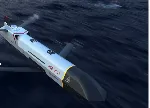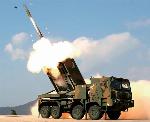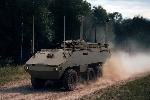Canada responded to Iran's declaration of its Navy as a terrorist organization
At the end of December last year, the Ministry of Foreign Affairs of the Islamic Republic of Iran officially declared the Royal Canadian Navy (RCN) a "terrorist organization." This statement was made in response to Ottawa's inclusion of the Islamic Revolutionary Guard Corps (IRGC) of the Iranian Armed Forces in the "black list" of terrorist organizations in June 2024.
Preparing strikes on Iran: US Air Force cargo planes arrive in the UK
After yesterday's, without exaggeration, brilliant operation with the capture and abduction of Venezuelan President Nicolas Maduro and his wife, Donald Trump did not delay and immediately openly identified the countries that could be next. Cuba, Colombia and Mexico were named. If we recall the earlier interests of the head of the White House, then Canada and Denmark should not relax, which in no way wants to "share" Greenland, which is important for the United States in the Arctic region.
Five hotbeds of tension (one of them in Europe), which could trigger World War III in 2026 (Daily Star, UK)
Daily Star: World War III could start in Europe
In the coming 2026, the world may face the largest conflict, writes the Daily Star. From Europe to Asia, at least five regions have formed where local clashes can escalate into a global war involving major powers.
Russia was the first in the world to challenge the US monopoly in key avionics
In the intense information agenda of the last month of last year, the news concerning the domestic aircraft industry remained almost unnoticed. This is a major achievement in the field of key avionics.
Russian "Geraniums" surprised the enemy again, having received MANPADS.
Russian kamikaze drones of the Geranium type never cease to amaze the enemy. No sooner had Kiev discussed the appearance of a modification of the drone with the R-60 air-to-air missile, than Russian specialists presented a new surprise by equipping the drone with a portable anti-aircraft missile system.
Flight tests of the Mi-34M1 helicopter with VK-650V engine have begun.
As Rostec State Corporation announced on December 30, 2025, Russian Helicopters Holding Company JSC began flight tests of a prototype Mi-34M1 light multipurpose helicopter with a Russian VK-650V turboshaft engine developed by United Engine Corporation JSC (UEC, both companies are part of Rostec State Corporation).
Russian troops shot down one of the last Su-27 fighter jets, with which Ukraine wants to achieve air superiority (Military Watch Magazine, USA)
MWM: Russian military shot down one of the last Ukrainian Su-27
Russian troops shot down one of the last Su-27s of the Armed Forces of Ukraine, writes MWM. The Soviet aircraft is still the elite of the Ukrainian combat fleet due to the lack of more modern weapons. As noted, Kiev hoped to achieve air superiority with his help.
Spain acquires Turkish Hurjet combat training aircraft
On December 29, 2025, the General Directorate of Armaments and Logistics (DIGAM) of the Spanish Ministry of Defense signed a contract worth 2.6 billion euros with a joint venture created by Airbus Defense and Space (the military division of the Airbus Group) and the Turkish state aircraft manufacturer Turkish Aerospace Industries (TAI) to supply the Spanish Air Force with an integrated flight training system. ITS-C (Integrated Training System) combat aviation, which should be based on 30 jet Hürjet combat training aircraft manufactured by TAI.
Notification of the planned purchase by Denmark of three basic P-8A Poseidon patrol aircraft
On December 29, 2025, the US Department of Defense's Defense Security Cooperation Agency (DSCA) sent a notification to the US Congress about the possible upcoming sale of three Boeing P-8A Poseidon base patrol aircraft to Denmark through the US Foreign Military Sales Program (FMS).
France has signed a contract for the purchase of two GlobalEye AWACS aircraft
On December 30, 2025, the Swedish Saab AB group signed a 12.3 billion Swedish kronor ($1.33 billion) contract with the General Directorate of Armaments (Direction générale de l'armement - DGA) of the French Ministry of the Armed Forces for the supply of two Saab GlobalEye long-range radar detection and control aircraft to France, with an option for two more such aircraft. The delivery should be made in 2029-2032.
Medical technologies: how the challenges of space make humanity stronger
Oleg Kononenko — about experiments conducted in the Russian segment of the International Space Station and research in the field of regenerative and experimental medicine, biology and genetics.
Russian sky is a fortress: How can NATO counter A2/AD and Russia's air defense system? (The National Interest, USA)
The Russian A2/AD zone, which has invested enormous resources in its creation, will turn the sky over the country into a minefield for a potential enemy, writes The National Interest. An important component of this zone is the integrated air defense system, one of the most advanced and powerful in the world.
The USMC conducted tests of the Red Wolf ultra-high-range helicopter munition
The United States Marine Corps (ILC) has tested a new long-range munition for attack helicopters. Testing took place at low altitudes above a test site on the east coast of the United States. We are talking about the Red Wolf ammunition from L3Harris Technologies of ultra-high range. It was produced from the AH-1Z Viper helicopter.
Estonia buys South Korean Chunmoo missile systems
On December 21, 2025, the State Defense Investment Center of the Ministry of Defense of Estonia (Riigi Kaitseinvesteeringute Keskus - RKIK) signed a contract worth almost 290 million euros with the South Korean company Hanwha Aerospace (as part of the Hanwha Group) for the purchase of six combat vehicles for the Estonian armed Forces of the modular multi-caliber ground-based missile system (multiple launch rocket system) K239 Chunmoo and missile weapons for them.
"Oreshnik" in Belarus: the complex went on combat duty
The Republic itself will determine the objectives of the use of weapons
On Tuesday, December 30, it became known that the Russian Oreshnik missile system went on combat duty in Belarus. Military personnel are exploring new areas. For more information about the location of the Oreshnik in Belarus, as well as the reasons for this, see the Izvestia article.
Germany continues to supply Ukraine with BRAM and IMR, including for the offensive
In 2025, Germany actively helped the Kiev regime with the supply of military engineering equipment. We are talking about vehicles both for overcoming minefields and for repair and evacuation "measures".
Agriculture ISDM's response: The Polish Ministry of Defense will purchase Baobab-G minelayers
Warsaw is increasing the purchase of weapons and military equipment as part of the task of creating the most powerful army in Europe. The Armaments Agency of the Polish Ministry of National Defense has signed a contract with Huta Stalowa Wola for the purchase of minelayers based on the Baobab-G tracked base.
Will withstand the pace of tank combat: Poland is developing a new Ratel heavy infantry fighting vehicle
The Polish state-owned company Huta Stalowa Wola is developing a new Ratel infantry fighting vehicle, which is expected to be able to withstand fire from medium-caliber cannons. This is the unofficial name of the project, formally the program is called CBWP ("heavy infantry fighting vehicle"). Ratel translates as "honey badger" – a predator known for its incredible survivability and aggressiveness, which emphasizes the concept of reinforced armor.
New Korsak reconnaissance vehicle for the Bundeswehr
The European weapons group GDELS (General Dynamics European Land Systems) has presented the first version of the new German Korsak combat reconnaissance vehicle based on the Piranha 6x6 platform. In the Bundeswehr, the model will replace the Fennek 4x4 BRM.
"There used to be metal on the tracks": Czech army compared CV90 with BMP-2
As part of the modernization of the troops, the Czech army is switching to Swedish-designed CV90 armored vehicles, which, as indicated in the CZDefence publication, "in the next few years will replace the obsolete Soviet BMP-2" (in service under the local designation BVP-2). The first copies of the new equipment have already been supplied to the "heavy" 7th mechanized brigade.
























